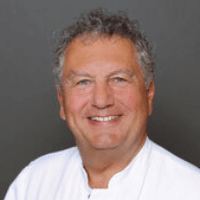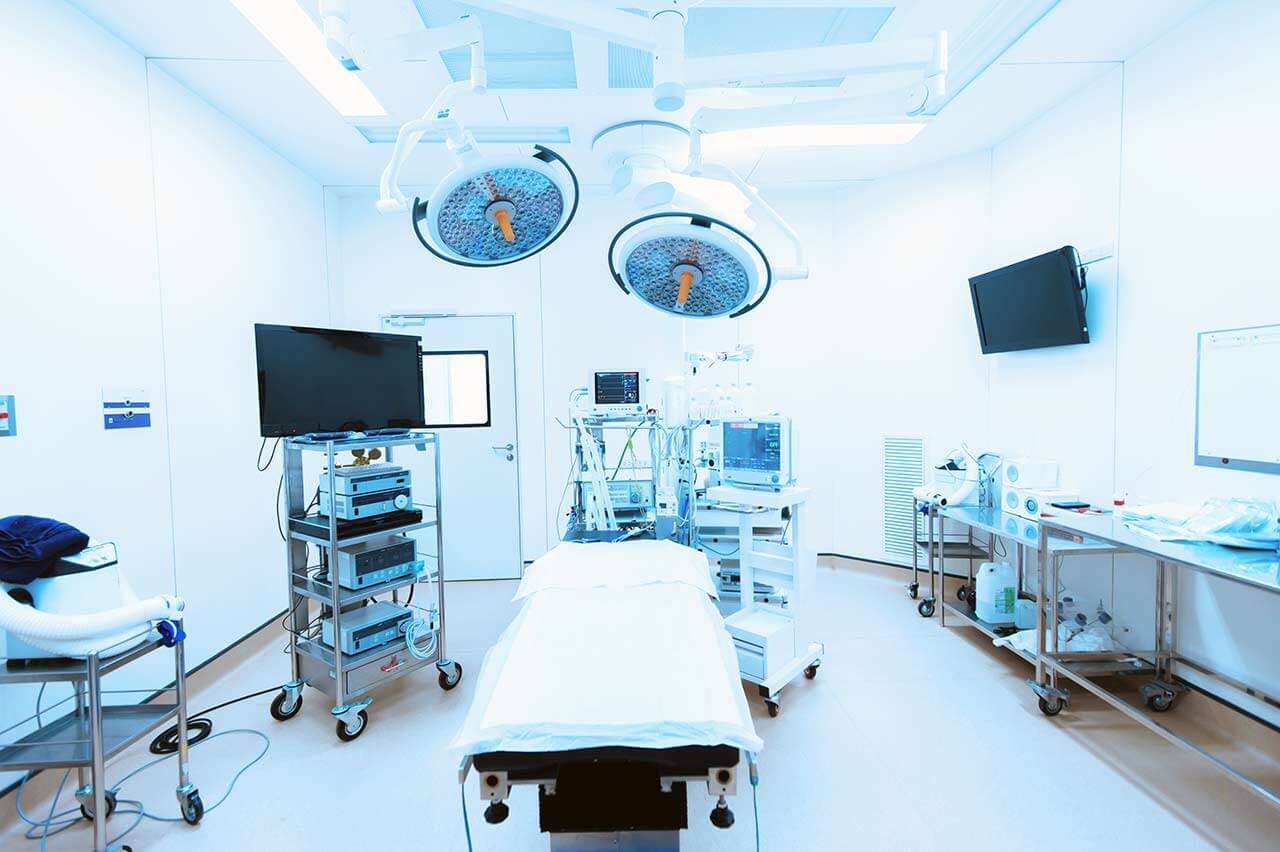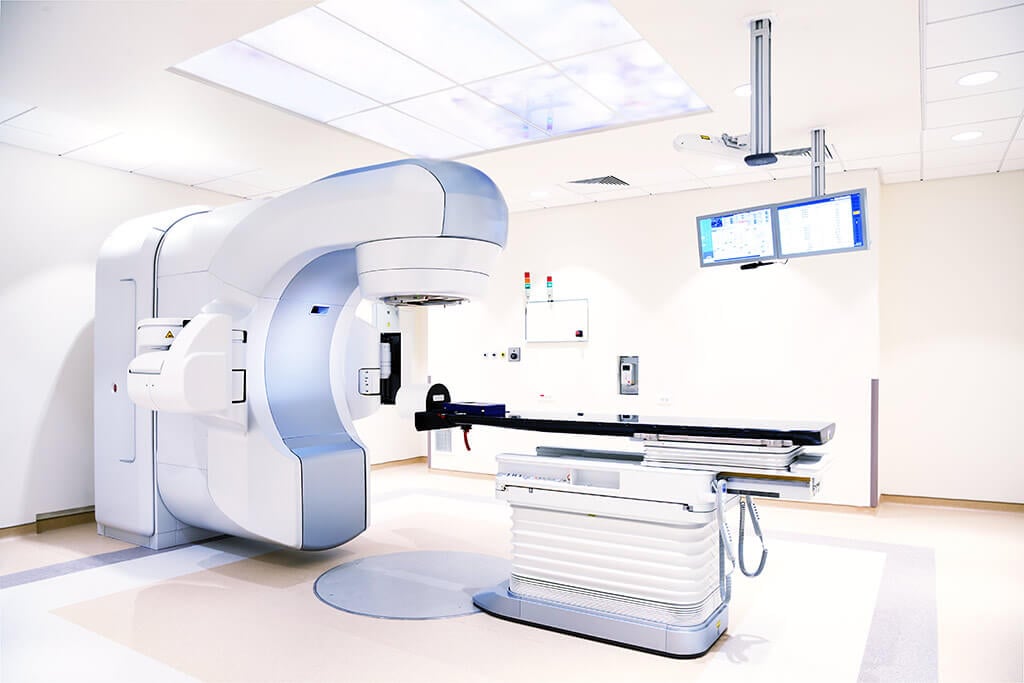
The program includes:
- Initial presentation in the clinic
- clinical history taking
- physical examination
- review of medical records
- laboratory tests:
- complete blood count
- biochemical analysis of blood
- TSH-basal, fT3, fT4
- indicators of inflammation (CRP, ESR)
- indicators blood coagulation
- ultrasound/ CT/ MRI
- preparation according to preoperative standard
- neurinoma resection
- symptomatic treatment
- control examinations
- the cost of essential medicines and materials
- nursing services
- full hospital accommodation
- explanation of future recommendations
- written statement
Required documents
- Medical records
- MRI (if available)
Service
You may also book:
 BookingHealth Price from:
BookingHealth Price from:
About the department
The Department of Spinal Surgery at the Catholic Clinic Koblenz-Montabaur offers the full range of effective treatment methods in the area of its specialization. A highly qualified team of doctors is at the service of the department's patients, who have in their arsenal advanced conservative and surgical treatment methods for pathological changes in the spine. Spinal surgical procedures are performed in modern operating rooms, the technical equipment of which allows spinal surgeons to perfectly perform both major open surgery and sparing interventions: minimally invasive, endoscopic, and microsurgical. Surgical treatment is complemented by a carefully planned course of physiotherapy. This includes procedures such as therapeutic exercises, manual therapy, massage, osteopathic treatment, etc. The department's team of doctors consists of 10 highly qualified specialists who, together with experienced nursing staff, admit more than 1,300 inpatients annually. The medical facility is certified by the German Society for Spine Surgery (DWG) as a level II specialized center. The department's medical team makes every effort to provide each patient with optimal treatment in a pleasant and friendly atmosphere. The Head Physician of the department is Dr. med. Francis Kilian.
Herniated discs are one of the most common spinal diseases. Pathology develops as a result of the rupture of the fibrous ring of the intervertebral disc (upper shell) and the extrusion of part of the nucleus pulposus (inner part of the disc). The main manifestations of herniated discs are severe pain in the back and deteriorated spinal mobility. In many cases, herniated discs respond well to conservative treatment, but the patient should be prepared for the fact that achieving a successful result from therapy can take quite a long period of time. Conservative treatment options include the prescription of painkillers, manual therapy (a highly specialized doctor uses a special complex of methods and massage techniques that affect the mobility of the spinal segments), massage, therapeutic exercises, and other methods. If a course of treatment is ineffective, the spinal surgeon considers possible options for surgical treatment. The department's specialists give preference to endoscopic surgery (microdiscectomy) if the patient's clinical indications allow for such an intervention. Endoscopic surgery is the most sparing of all the options currently available for the treatment of herniated discs. The essence of microdiscectomy is to remove the deformed part of the intervertebral disc that has undergone deformation using an endoscope. The intervention is performed under general anesthesia, and the patient usually gets back on their feet the day of the operation. A big advantage of endoscopic treatment for herniated discs is also the fact that there are practically no complications after such an operation. Other options for surgical treatment of herniated discs are discectomy and laminectomy.
The department's spinal surgeons have been treating spondylolisthesis for many years, in which the patient suffers from spinal instability that occurs due to excessive vertebral mobility. Vertebral displacement may provoke the development of spinal deformity, spinal stenosis, compression of the nerve endings and blood vessels in the affected area, and other problems. The optimal treatment for spondylolisthesis depends on the severity of the symptoms and the stage of the disease. In the early stages of pathology, conservative methods are usually used. The patient is prescribed painkillers, manual therapy, physiotherapy, therapeutic exercises, massage, acupuncture, and other procedures to relieve pain. Wearing a special corset also has a good effect. However, if conservative therapy does not give the desired result, the only effective treatment option is surgery, namely a stabilizing intervention. The purpose of the operation is to fix the "slipped" vertebra in its normal anatomical position, after which the affected area of the spine is additionally stabilized using a special device made of hypoallergenic metal.
The department also specializes in the surgical treatment of benign and malignant tumors of all segments of the spine. Patients with spinal tumors are treated cooperatively with related specialists, including oncologists, radiologists, radiation therapists, and others. An interdisciplinary approach provides patients with the most comprehensive and effective treatment, taking into account the slightest nuances. As in most other tumors, the best treatment option is total tumor removal. At the same time, doctors are faced with the task of maintaining the integrity of the nerves and tissues surrounding the tumor, which will help eliminate disability in the future. Surgery for spinal tumors is performed in the department using microsurgical techniques. Surgeons have at their disposal powerful surgical microscopes that allow them to easily differentiate between the tumor and healthy tissue. Surgery for malignant tumors is usually supplemented with chemotherapy and/or radiation therapy aimed at the total destruction of malignant cells remaining in the patient's body.
The department's surgeons regularly admit patients with scoliosis. Scoliosis is a lateral curvature of the spine that can be congenital or acquired. Regardless of the cause of the deformity, scoliosis may lead to uneven distribution of the load on the spine, severe pain, and movement restrictions. In addition, pathology negatively affects the patient's general health and quality of life. The therapeutic process begins with comprehensive diagnostics, including a clinical examination, assessment of X-ray images, and others. During the diagnostics, doctors take into account the patient's specific symptoms, his age, general health, and other factors that are also important in developing the optimal treatment regimen. The first-line treatment is conservative therapy with therapeutic exercises, physiotherapy, and the wearing of special corrective corsets, but in complex cases, it is often impossible to do without surgical repair. When performing the surgical intervention, the department's doctors place a special implant (a metal rod) for the patient with fixators that can move along the axis of the spine, which are attached to the vertebral bodies, as a result of which spinal curvature can be eliminated. The department's surgeons always give preference to performing interventions using minimally invasive techniques, due to which the postoperative recovery process is extremely fast and there is practically no risk of complications.
The department specializes in the treatment of the following spinal diseases:
- Herniated discs
- Spondylolisthesis (spinal instability), including in cases of intervertebral disc degeneration, post-nucleotomy syndrome after spinal fractures, and due to inflammatory processes
- Congenital and acquired scoliosis
- Benign and malignant spinal tumors
- Spinal malformations
- Other spinal diseases and deformities
The department's range of medical services includes:
- Conservative treatment
- Therapeutic exercises, including with the use of special equipment
- Manual therapy
- Manual lymphatic drainage massage
- Physical therapy: electrotherapy and thermotherapy
- Therapeutic massage
- Exercises to strengthen the back muscles on the Tergumed® simulator
- Osteopathic treatment
- Kinesiology taping
- 3D scoliosis correction using the Schroth method
- Surgical treatment
- Endoscopic surgery
- Minimally invasive surgery
- Microsurgical procedures
- Other treatment methods
Curriculum vitae
Higher Education
- 1976 - 1994 Board certification in Neurosurgery, Orthopedics, and Spinal Surgery, Ruhr University Bochum, University of Duisburg-Essen, and Heinrich Heine University Duesseldorf.
- 1976 - 1982 Medical studies, state exams and doctorate, Ruhr University Bochum.
Professional Career
- Since 1999 Head of the Department of Spinal Surgery at the Catholic Clinic Koblenz-Montabaur, Koblenz, Germany.
- 1996 - 1998 Medical Advisor, Department of Spinal Surgery, Hospital Lorelei, Oberwesel, Germany.
- 1994 - 1996 Medical Advisor, Orthopedic Surgeon, Department of Orthopedics, St. Josef Hospital, Koblenz, Germany.
- 1990 - 1993 Residency, Department of Orthopedics, University Hospital Duesseldorf, Duesseldorf, Germany.
- 1983 - 1990 Intern, Department of Neurosurgery, University Hospital Essen, Essen, Germany.
Memberships in Professional Societies
- European Spine Society (EUROSPINE).
- German Society for Spine Surgery.
- International Society for Minimally Invasive Spine Surgery.
- German Society of Plastic, Reconstructive and Aesthetic Surgeons.
- German-Japanese Society for Orthopedics and Traumatology.
Photo of the doctor: (c) Katholisches Klinikum Koblenz - Montabaur
About hospital
The Catholic Clinic Koblenz-Montabaur is a modern medical facility with an excellent reputation in Germany and abroad. The medical center is an academic clinic of the University Hospital Mainz, which gives patients the opportunity to take advantage of scientific advances and innovative treatments. The clinic has the widest possibilities for providing effective medical care to patients with both common and especially complex and rare pathologies. In December 2017, the clinic was certified in accordance with DIN EN ISO 9001:2015 standards, and in 2020, it was successfully recertified, which is a confirmation of the high quality of medical service. The clinic has 20 departments with 17 highly specialized centers integrated into them. The bed fund of the medical facility includes 657 beds. More than 32,000 inpatients and about 133,000 outpatients receive medical care here annually.
Many medical specialties are available at the clinic, including general and abdominal surgery, bariatric surgery, vascular surgery, thoracic surgery, cardiology, pulmonology, gynecology, urology, neurology, orthopedics, traumatology, radiology, nuclear medicine, and others. Each of the medical specialties is represented by an experienced team of doctors and nursing staff who do their best to restore the patient's health. Doctors of various medical fields work in close cooperation, which allows for an interdisciplinary approach to solving health problems.
The pride of the clinic is the advanced technical base, which plays an important role in accurate examinations and effective treatment. For example, the operating rooms at the clinic are equipped in accordance with the current requirements of European medicine, due to which most surgical interventions are performed using sparing techniques, including laser surgery, video-assisted thoracoscopic surgery, arthroscopy, endovascular and hybrid surgical techniques, etc.
Despite the clinic's high-tech infrastructure, there is an atmosphere of understanding, sympathy, and respect for the patient. The medical team shows a humane attitude towards patients and takes care of their comfort throughout the entire period of treatment. Doctors devote enough time to personal communication with patients, which makes it possible to take into account their individual needs and wishes during the therapeutic process.
Photo: (с) depositphotos
Accommodation in hospital
Patients rooms
The patients of the Catholic Clinic Koblenz-Montabaur live in comfortable single and double rooms with light colors and modern design. Each patient room has an ensuite bathroom with a shower and a toilet. The furnishings of a standard patient room include an automatically adjustable bed, a bedside table, a wardrobe, a table and chairs for receiving visitors, and a TV. The telephone is provided for a fee. Wi-Fi is available upon request.
The clinic also offers enhanced comfort rooms corresponding to the level of a five-star hotel. These patient rooms are more spacious and have a sophisticated design. The bathroom of the enhanced comfort rooms has a set of toiletries, changeable towels, and a bathrobe.
Meals and Menus
The patient and the accompanying person can choose meals from three menus daily. If, for some reason, you do not eat all the foods, you will be offered an individual menu. Please inform the nursing staff of your dietary preferences prior to treatment.
Patients living in enhanced comfort rooms are additionally offered free soft drinks, coffee, tea, desserts, and fresh fruits.
Further details
Standard rooms include:
Religion
A Catholic liturgy is held every Sunday morning in the church at the clinic. The divine liturgy is also broadcast on the clinic's internal TV channel.
Accompanying person
Your accompanying person may stay with you in your patient room or at the hotel of your choice during the inpatient program.
Hotel
You may stay at the hotel of your choice during the outpatient program. Our managers will support you for selecting the best option.





